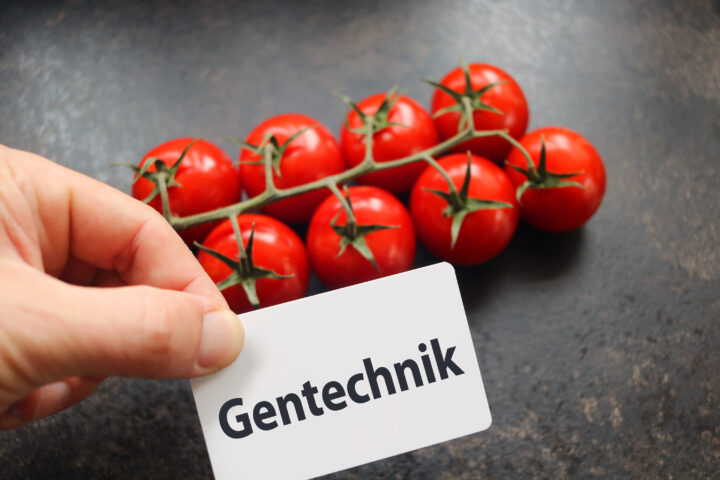
Farmers demonstrate against pesticide bans
French farmers have called for a large demonstration. Between February 8 and 20, 2023, farmers will drive their tractors into the heart of Paris to protest against the gradual decline in French agricultural production. The farmers have an ever-decreasing number of pesticides at their disposal to protect their crops.
Wednesday, February 22, 2023
As reported by French Newspaper Le Figaro, farmers will be driving tractors and buses from Porte de Versailles in the south of Paris to the Esplanade des Invalides near the National Assembly and the Ministry of Agriculture. The decision to stop at Les Invalides is no coincidence, for this is home to the tomb of Napoleon Bonaparte, who imported sugar beet from Poland to France to make France less dependent on sugar.
Risk to sugar beet crops
The reason for the protest is a decision by the French government on January 23, 2023, to drop its plan to re-authorize neonicotinoids. Neonicotinoids are pesticides used as a seed treatment. In sugar beet, they protect against the crop disease virus yellows, a viral disease that repeatedly causes widespread sugar beet crop failure. France had been granted a two-year exemption for the neonicotinoids, but the European Court of Justice has now ruled such exemptions unlawful.
Threatened loss of production
The issue of neonicotinoids, however, is only the tip of the iceberg. Many other pesticides have also recently had their approvals withdrawn. These include the insecticide phosmet. According to farmers’ representatives, if the use of this pesticide is no longer allowed, French cherry production is at risk. An herbicide used in the cultivation of chicory is also no longer available to farmers. French farmers warn that this is a dangerous development which could lead to an ever greater decline in France's agricultural production sector. Farmers are calling on the government to significantly improve the current situation. Otherwise, food sovereignty is also threatened.
Food security a European challenge
The argument of the French farmers’ union is very similar to the debate in Germany: The union has called on farmers to take a stand against the increasingly stringent requirements, regulatory constraints and bans on pesticide use. As in Germany, the planned blanket bans on the use of pesticides are criticized for the absence of alternatives for crop farmers. In addition, farmers want to defend themselves against the pricing policies of food retailers. The French farmers’ union warns of increasing food imports produced under lower standards. As reported by the Schweizer Bauer, young farmers and horticulturists also demonstrated in Belgium. They are committed to sustainable production, but feel abandoned by the government.
Swiss farmers also affected
The situation for Swiss farmers is also coming to a head: No new active agents will be introduced in crop production for 2023; only new marketing authorizations for existing products. And many agents are subject to special approval. These restrictions promote the emergence of resistance. This is what the Schweizer Bauer writes in its crop protection dossier from February 11, 2023, entitled “The cuts will have consequences.” swiss-food.ch also reported on the worsening situation in 2023 and the dramatic decline in approved pesticides in Switzerland.
Sources
Schweizer Bauer, February 19, 2023
Kindly note:
We, a non-native editorial team value clear and faultless communication. At times we have to prioritize speed over perfection, utilizing tools, that are still learning.
We are deepL sorry for any observed stylistic or spelling errors.
Related articles

ARTE documentary: Genetic engineering in organic farming?
The ARTE documentary “Genetic engineering in organic farming?” examines key controversial questions of modern agriculture: Is the general exclusion of new breeding technologies still up to date? Can the resistance of organic farming be justified scientifically?

The Great Suffering of Farmers
Fire blight, Japanese beetles, or grapevine yellows – farmers in Valais, too, are increasingly feeling helpless in the face of the threats posed by nature. More and more often, they lack the means to effectively protect their crops. This makes it all the more important for the Federal Council to place a pragmatic balancing of interests at the forefront when setting threshold values.

'Tomatoes on your eyes'
The submitted “Food Protection Initiative” calls for “GMO-free food.” Leaving aside this illusory demand, its adoption would mean more bureaucracy, more trade barriers, and less innovation. The Swiss Farmers’ Union describes the proposal as “unnecessary” and warns of a setback to the goal of achieving an even more sustainable agriculture.

How our daily lives end up in the water
When residues in our waters are discussed, agriculture is often portrayed as the main culprit. Yet a closer look shows that the sources are diverse and often much closer to everyday life than assumed.

